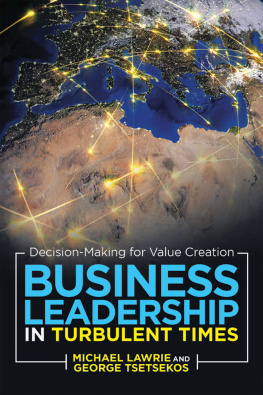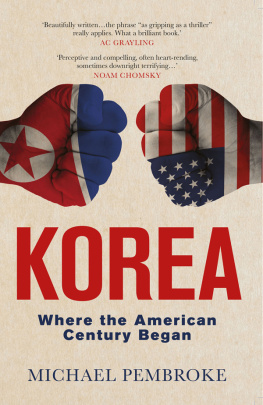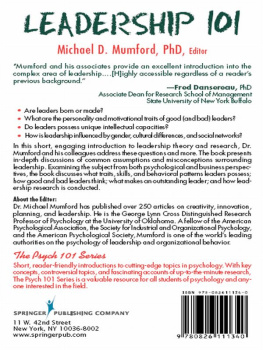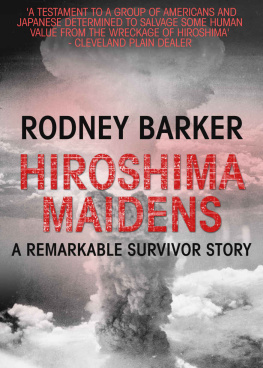Michael Pembroke - Play by the Rules: The short story of Americas leadership: From Hiroshima to COVID-19
Here you can read online Michael Pembroke - Play by the Rules: The short story of Americas leadership: From Hiroshima to COVID-19 full text of the book (entire story) in english for free. Download pdf and epub, get meaning, cover and reviews about this ebook. year: 2020, publisher: Hardie Grant Books, genre: Politics. Description of the work, (preface) as well as reviews are available. Best literature library LitArk.com created for fans of good reading and offers a wide selection of genres:
Romance novel
Science fiction
Adventure
Detective
Science
History
Home and family
Prose
Art
Politics
Computer
Non-fiction
Religion
Business
Children
Humor
Choose a favorite category and find really read worthwhile books. Enjoy immersion in the world of imagination, feel the emotions of the characters or learn something new for yourself, make an fascinating discovery.
- Book:Play by the Rules: The short story of Americas leadership: From Hiroshima to COVID-19
- Author:
- Publisher:Hardie Grant Books
- Genre:
- Year:2020
- Rating:4 / 5
- Favourites:Add to favourites
- Your mark:
- 80
- 1
- 2
- 3
- 4
- 5
Play by the Rules: The short story of Americas leadership: From Hiroshima to COVID-19: summary, description and annotation
We offer to read an annotation, description, summary or preface (depends on what the author of the book "Play by the Rules: The short story of Americas leadership: From Hiroshima to COVID-19" wrote himself). If you haven't found the necessary information about the book — write in the comments, we will try to find it.
Michael Pembroke: author's other books
Who wrote Play by the Rules: The short story of Americas leadership: From Hiroshima to COVID-19? Find out the surname, the name of the author of the book and a list of all author's works by series.
Play by the Rules: The short story of Americas leadership: From Hiroshima to COVID-19 — read online for free the complete book (whole text) full work
Below is the text of the book, divided by pages. System saving the place of the last page read, allows you to conveniently read the book "Play by the Rules: The short story of Americas leadership: From Hiroshima to COVID-19" online for free, without having to search again every time where you left off. Put a bookmark, and you can go to the page where you finished reading at any time.
Font size:
Interval:
Bookmark:

At the end of World War II, the United States, more than any other country, nurtured the idea of an international community of nations governed by the rule of law. Its leading role in the creation and implementation of the United Nations and the International Military Tribunal at Nuremberg enhanced its post-war moral ascendancy. So did its role in advocating for the Universal Declaration of Human Rights. Although the Nuremberg trials did not address war crimes by anyone on the Allied side, and were criticised by some as victors justice, they were responsible for the introduction to the world of the concepts of genocide and crimes against humanity. The United Nations and Nuremberg were intertwined. Their establishment was led by the United States and both reflected the highest hopes for humankind.
Those hopes were epitomised in the words and sentiments of the American jurist Robert Jackson, who stepped aside from the Supreme Court to become the United States principal representative and chief prosecutor at Nuremberg. The ancient Bavarian town had been Hitlers venue of choice for Nazi rallies during the 1930s. But in November 1945, amid the old towns rubble and ruin, an intimate wood-panelled courtroom in Nurembergs Palace of Justice became the venue for the greatest trial in history. German leaders Gring, von Ribbentrop, Speer and twenty-one other accused all appeared in the dock. It has been said that Justice was triumphant at Nuremberg. The world is better for it. Nurembergs impact is universal. Civilization took a giant leap forward. It is true.
Jackson was hand-picked by President Truman, who had been impressed by a speech Jackson gave about the post-war order on the day after Roosevelts death in April 1945. In that speech, Jackson envisioned a future United Nations and a future International Court of Justice, explaining that:
It is not enough that we restore peaceAll else will fail unless we devise instruments of adjustment, adjudication, and conciliation, so reasonable and acceptable to the masses of people that future governments will have always an honorable alternative to war.
Imagining a future International Court of Justice, he emphasised that:
much hinges on acceptance of the concept of the Court as an independent body above obligation to any nation or interest.
As a warning to politicians and future American presidents, he reiterated that:
it is futile to think that we can have international courts that will always render the decisions we want to promote our interests. We cannot successfully cooperate with the rest of the world in establishing a reign of law unless we are prepared to have that law sometimes operate against what would be our national advantage.
And as an explanation of the rationale for the necessity of an international court, he added:
But the worst settlement of international disputes by adjudication or arbitration is likely to be less disastrous to the loser and certainly less destructive to the world than no way of settlement except war.
Six months later, Jacksons celebrated opening speech at Nuremberg was as much political as it was legal. He began by noting Americas unique perspective as the most dispassionate, for having sustained the least injury, it is perhaps the least animated by vengeance. He made the connection with the United Nations crystal clear, telling the tribunal and the world that both the United Nations and the Nuremberg trial were forces for good, operating in tandem, seeking the same objective:
This trial is part of the great effort to make the peace more secure. One step in this direction is the United Nations organization, which may take joint political action to prevent war if possible, and joint military action to insure that any nation which starts a war will lose it. This Charter, and this Trialconstitute another step in the same direction
Echoing the principles on which the United Nations Charter was based, Jackson contended that the unilateral resort to war was, or should be, illegal, saying, Our position is that whatever grievances a nation may haveaggressive warfare is an illegal means for settling those grievances except when justified by self-defence. He returned to the point a number of times, in language that is memorable for its clarity and directness:
Any resort to war to any kind of war is a resort to means that are inherently criminal. War inevitably is a course of killings, assaults, deprivations of liberty, and destruction of property. An honestly defensive war is, of course, legal and saves those lawfully conducting it from criminality.
There was an attractiveness to Jacksons logic. He reminded the tribunal that it was a crime for one man with his bare knuckles to assault another under the law of all civilised peoples. He therefore asked rhetorically, How did it come about that multiplying this crime by a million, and adding firearms to bare knuckles, made it a legally innocent act? He lamented that this was intolerable for an age that called itself civilized, as well as being contrary to the teachings of early Christian and international scholars such as Grotius.
There was no hubris or exceptionalism then. The universal and reciprocal nature of the standards imposed by the tribunal was central to Jacksons appeal:
If certain acts in violation of treaties are crimes, they are crimes whether the United States does them or whether Germany does them, and we are not prepared to lay down a rule of criminal conduct against others which we would not be willing to have invoked against us.
And he reminded the parties that We must never forget that the record on which we judge these defendants is the record on which history will judge us tomorrow.
Jacksons words and sentiments in 1945 reflected an American outlook on the world that shone briefly and brightly after the war: one that represented unquestioned moral leadership. The country was admired for its virtue and envied for its peace-and-plenty economy. At that time it did not claim any privilege, any special dispensation, absolving it from the rules and conventions of international law that applied to other nations. What happened?
The idea of exceptionalism took hold in Washington. The concept is, if anything, a twentieth-century phenomenon: faintly traceable to President Woodrow Wilson, coming into its own after World War II and being turbo-charged by the end of the Cold War the point in history that Francis Fukuyama described with portentous simplicity as the end of history. In modern America, it has become a mantra, cloaked in the language of a divine mission to deliver not only success for itself but global salvation. Jeffrey Sachs has explained that the idea of American exceptionalism is so deeply set in American culture and the institutions of foreign policy that it has become a civic religion. Its adherents contend that the United States has a destiny and duty to expand its power and the influence of its institutions and beliefs until they dominate the world. It is said to be a moral imperative. But to adapt the language of Yuval Noah Harari in Sapiens, it is an imagined order woven into the tapestry of life.
A modern rational person, whether religious or not, might be forgiven for questioning the credibility, let alone the wisdom, of any continuing notion that a country could have a divine mission even a destiny and duty to do anything. It is a startling presumption, oddly arcane, which does not survive critical analysis. It is reminiscent of the Chinese Mandate of Heaven which, according to ancient theory, was bestowed upon the emperor not to exploit the world but to spread justice and humanity. The French philosopher Bernard-Henri Lvy encapsulated the curious, other-worldly essence of American exceptionalism and its missionary ideal in his recent book
Next pageFont size:
Interval:
Bookmark:
Similar books «Play by the Rules: The short story of Americas leadership: From Hiroshima to COVID-19»
Look at similar books to Play by the Rules: The short story of Americas leadership: From Hiroshima to COVID-19. We have selected literature similar in name and meaning in the hope of providing readers with more options to find new, interesting, not yet read works.
Discussion, reviews of the book Play by the Rules: The short story of Americas leadership: From Hiroshima to COVID-19 and just readers' own opinions. Leave your comments, write what you think about the work, its meaning or the main characters. Specify what exactly you liked and what you didn't like, and why you think so.









